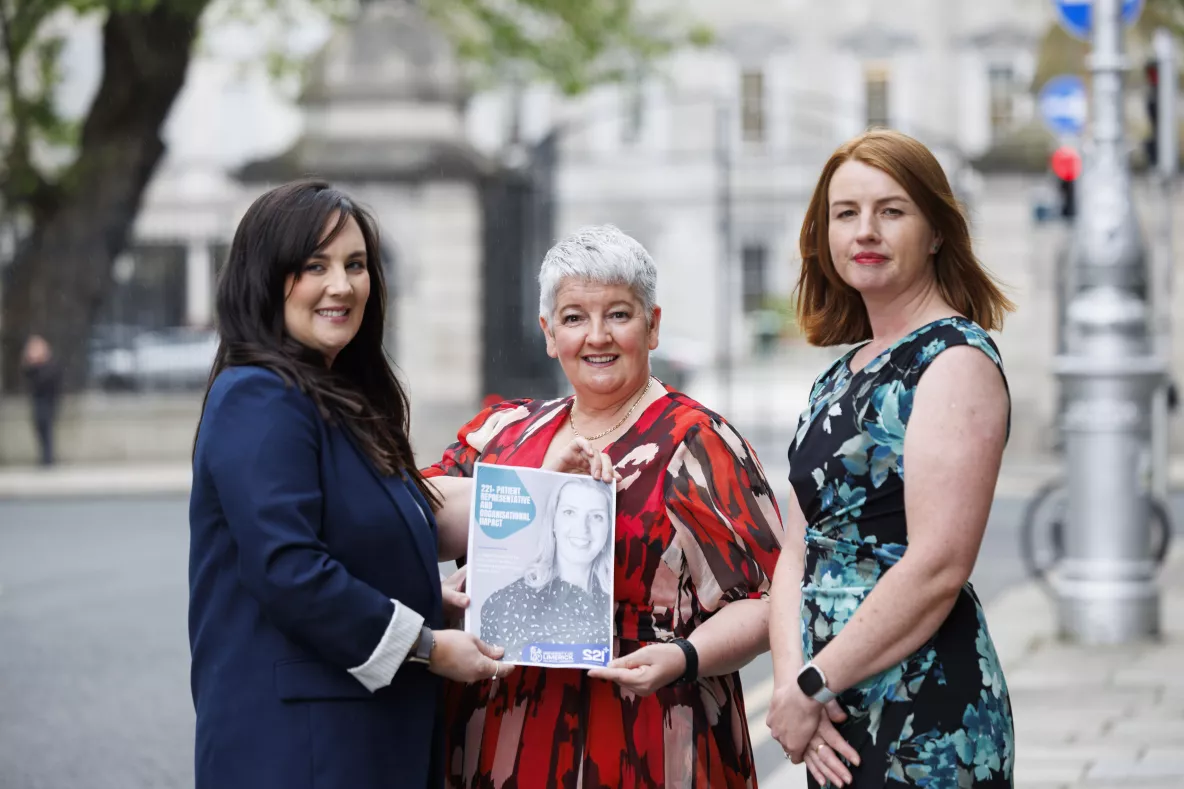

The work of the 221+ group and patient advocates has contributed significantly to an improved healthcare system in Ireland and is seen by patients as providing them with a “lifeline” according to research published by University of Limerick.
The study conducted late last year looked at the work done by the 221+ patient support group for the women and families directly affected by past issues in the Cervical Check Screening Programme.
It found that:
- The work of 221+ is seen universally, by patients and healthcare professionals alike, as an effective support group for its members
- The work of patient representatives to improve the quality of information from, and interaction with, the health service providers improved outcomes for patients generally
- The support group provided a safe space for shared understanding which was highly valued by patients and members
- Members specifically valued the option to connect with others in a similar position based on their shared identity
- The 221+ group has created a voice for members with the media and governmental groups
- 221+ advocacy has stimulated greater openness to discussing women’s health in Ireland
The study, led by Associate Professor Elaine Kinsella from the Department of Psychology and Centre for Social Issues at UL was conducted with key stakeholders within the 221+ organisation and key individuals across the health system, in both statutory and voluntary sectors.
The research also found that that the 221+ patient support group was
- perceived as providing trusted and honest information
- credited with working towards improvements in healthcare provision for women
- seen to develop effective networks and secure key stakeholder support
- guiding key stakeholders towards improvements in healthcare provision
In its conclusions, the study noted that 221+ was identified as a group that could continue to promote the importance of the patient voice in medical and health domains which should lead it to
- Consider opportunities to expand services to represent all women impacted by cervical cancer, but with an emphasis on maintaining a clear focus and clear scope of work.
- Explore opportunities for improvements in ongoing support and protection of patient representatives
- Explore the development of an awareness campaign about the importance of both cervical screening and vaccinations ̶ actively dispelling misinformation and reducing stigma associated with cervical cancer
- Identify scope for participation in aspects of education, training and development programmes for medical and health professionals, particularly to highlight the importance of the ‘patient voice’ in healthcare service delivery through use of story narratives about patient’s lived experiences.
- Build on existing collaborations with key stakeholders to promote greater trust in healthcare through advocacy
Commenting on the research, 221+ Patient Representative, Lyn Fenton said: “As a member firstly I can vouch for the immeasurable value of having a place where what I have experienced and am feeling is felt equally by others, where I don’t have to explain myself and where people just ‘get it’.
“I have also seen first-hand the effect of being able to engage with health service providers. It is very encouraging to see the recognition that is emerging from the health community, and seeing it being put into practice, and changing the experiences in a positive way for patients.”
Research lead Dr Elaine Kinsella said: “The findings of the research are consistent with previous research showing how peer support can buffer negative emotional experiences. It reinforces findings elsewhere that in-group support can diminish stress experiences and enhance wellbeing allowing those impacted to interpret a significant life challenge as more manageable.”
She added: “The findings are also consistent with what we know about the role of patient representatives in promoting healthcare advocacy and reform.”
Ceara Martyn, Manager of the 221+ Patient Support Group highlighted the findings on the importance of patient representation and appealed that Government complete the work started on its ‘Patient Voice Partner Policy’ which was published in draft form for consultation over a year ago.
She explained: “A voice for patients should be included in all elements of health policy and service development, reform and implementation. The government has already committed to this and has set out a framework by which patient representatives are ‘recognized and valued for their contribution’.
“This consultation process needs to be brought to a close with a decision that it either reimburse expenses and/or compensate patient representatives so that we can start to recognise the value they add and encourage greater participation. As it is, people want to contribute but cannot afford to. That serves nobody.”
Dr Gabriel Scally added: “I think this is an excellent report. It provides a very good basis for 221+ to make a continued and valuable contribution in the future. It is important to remember that the serious failures in the organisation, planning and operation of Cervical Check have taken time and effort to correct.
“The few remaining changes that have not been implemented still require an organisation like 221+ to act with independence and insight in ensuring that Ireland’s cervical screening programme is the best that it possibly can be.”
The full report is available on the 221+ website.
Telephone: +353-61-213081 or 234392
Faculty Office, Faculty of Education and Health Sciences, University of Limerick, Limerick, Ireland.